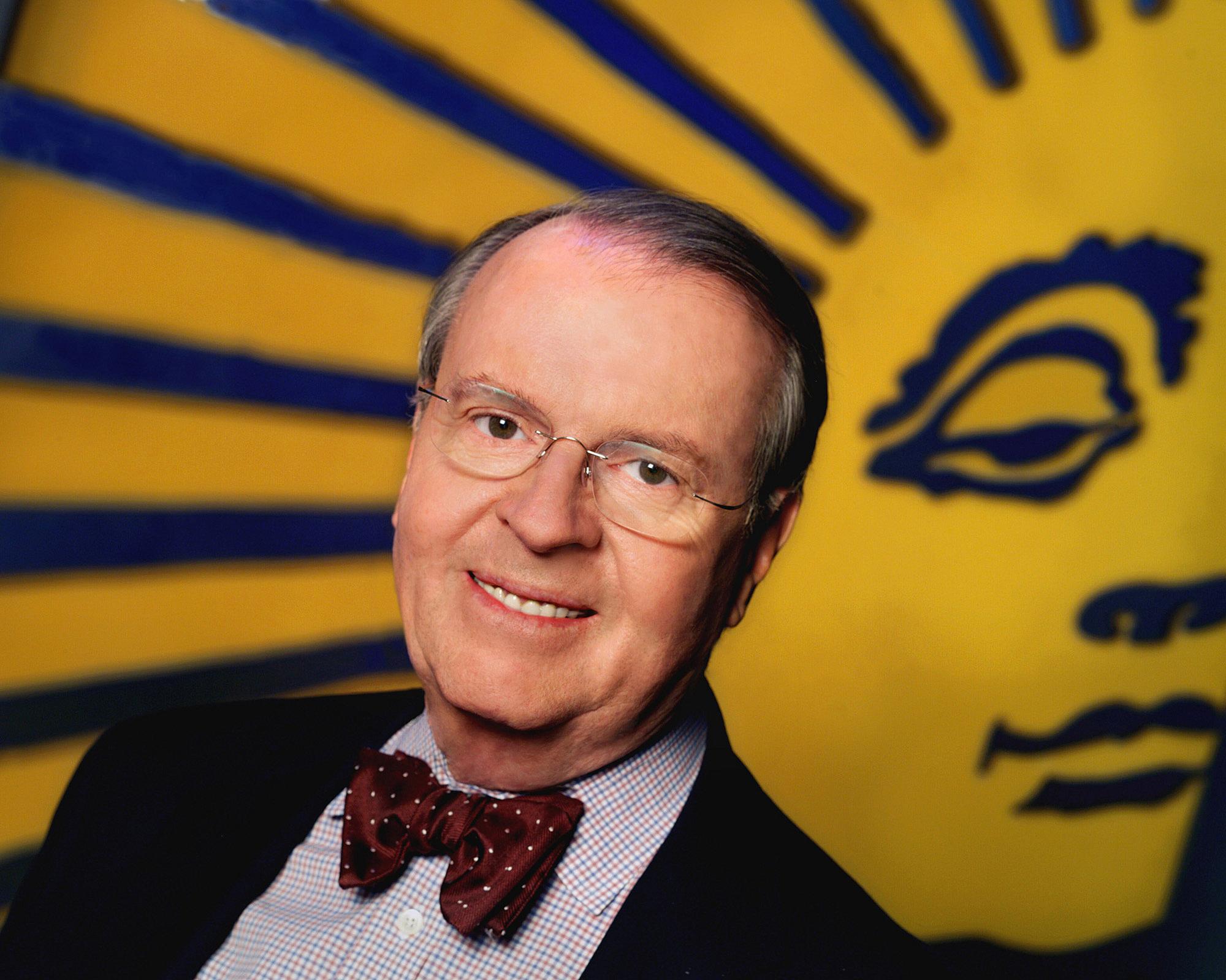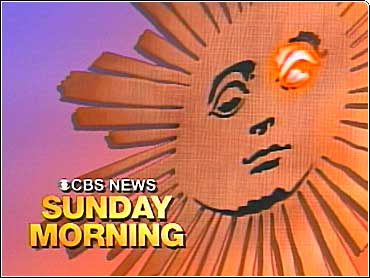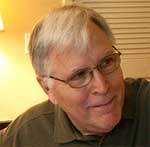[Bianculli here: One of the best things about TV WORTH WATCHING, if I do say so myself (and I do), is that its writers are encouraged to follow their passions. Today, contributing columnist Tom Brinkmoeller's passion takes him to an old TV friend: a show that's been around since the Carter administration, but remains one of broadcast TV's most watchable, least hyper nonfiction newsmagazines...

'Sunday Morning' Stays at Top Form by Staying the Same
A little more than 30 years ago, as it was getting ready to debut CBS' Sunday Morning, the network mailed out a promotional piece that was perceived as a challenge by many who received it. It was a drawing of a newspaper floating out of a TV screen.
"CBS News Sunday Morning," read the copy. "The Sunday Paper that Comes in a Tube!"
Sent to newspapers across the country, it seemed like a red cape waved in front of people so bullish at the time on print news. I know that because the people at my paper, who patiently smiled at the CBS claim, assigned me the story of finding the reactions of other news folk.
"Like other TV news programs, they'll be hard-pressed to deal effectively with other than visual news," said a news executive at one paper.
"I'm glad that TV's adding to its news coverage," said the managing editor of another paper. "God knows they need it. But I feel they could run news all day and still not equal the kind of content we offer."
"The beautiful thing about a Sunday newspaper," said another of these unfazed editors, "is that you can pick it up and read it any time during the week . . . That's something they can't easily do with a newscast."
Since that day in 1979, time-shifting of programming through home VCRs and DVRs has arrived, and it, like the Internet, has scrambled the news assessments of three decades ago. Newspapers are curled into a corner, as afraid and bewildered as the bully who's met his match. Latest figures from the group that audits newspaper circulation numbers show subscribers for Sunday papers dropped 4.8 percent between October 2008 and March 2009. Arrogance is a tricky thing.
Meanwhile, Sunday Morning is having its "best season in several years" -- so says the program's executive producer for the last 10 years, Rand Morrison. "We have 5 million loyal . . . viewers each week," in what Nielsen reports are 3.7 million homes.

But it's more than changes in the media landscape that have made Sunday Morning so successful for so long. A look at the many failed newsmagazine attempts from NBC over that span, as well as the sorry state of the surviving Dateline, proves network presence doesn't translate to lifetime respectability.
CBS' Sunday Morning started as a class act and has only improved since. Robert (Shad) Northshield, a creator of the show and its first executive producer, said back then that CBS had dedicated "a real commitment" and a "relatively high budget" to Sunday Morning. Morrison says the network's support hasn't changed and the trendiness that marks other news shows hasn't been forced on his.
"We're very lucky to have enlightened bosses who understand that, for our audience, this works. I have never had a conversation with a boss to start or stop a story."
No one has pushed to have studio windows looking out on the street. There are no live performances by pop groups. No cooking or decorating demonstrations. Host Charles Osgood doesn't ask his viewers to guess where in the world he's traveled to this week. (Morrison says, "We've been really fortunate to have had two anchors throughout the show's history, Charles Osgood and before him Charles Kuralt, who our viewers have considered to be smart and loved broadcasters.")
Instead, viewers get to see deep, truly interesting interviews with people who don't have a movie, album or book to peddle. Recent stories about Sheryl Crow, Dennis Hopper, Norman Lear, Lynda Carter, Lionel Richie and Marianne Faithfull are the kinds you don't see on Today, Good Morning America or the other regular stops on the hype circuit.

Features one recent week included two other examples of what Morrison says are stories "that take [viewers] someplace they never thought they'd be going" -- a 2-year-old pool-playing phenomenon known as New York Shorts (watch it here), and the love-to-hate process behind buying a parrot and then finding out they're more work than buyers ever imagined. The program's consistently strong reporting, producing and editing guarantee the most engrossing 90 minutes of news produced anywhere.
Judy Woodruff, senior correspondent on PBS' equally respected NewsHour With Jim Lehrer, mirrors the respect Sunday Morning carries among fellow professionals:
"They found a formula that defines who they are and what they offer uniquely, and they've stuck with it. Despite dramatic changes in the news media, and pressures to try something different and 'hip,' they haven't changed their mission or their approach in any fundamental way in all the years they've been on the air. Viewers know what they're getting when they turn to CBS' Sunday Morning -- in-depth looks at some of the most interesting and under-reported stories of the day. Plus, they've kept a crew of terrifically talented correspondents and producers, who deliver week in and week out."
Hear much praise like that for newspapers lately?
[In most markets, Sunday Morning airs at 9 a.m. ET, but check your local listings.]
----------

Tom Brinkmoeller, who may
have smirked with the best
of them back when CBS'
Sunday Morning premiered,
has only rarely missed a
Sunday broadcast for years.